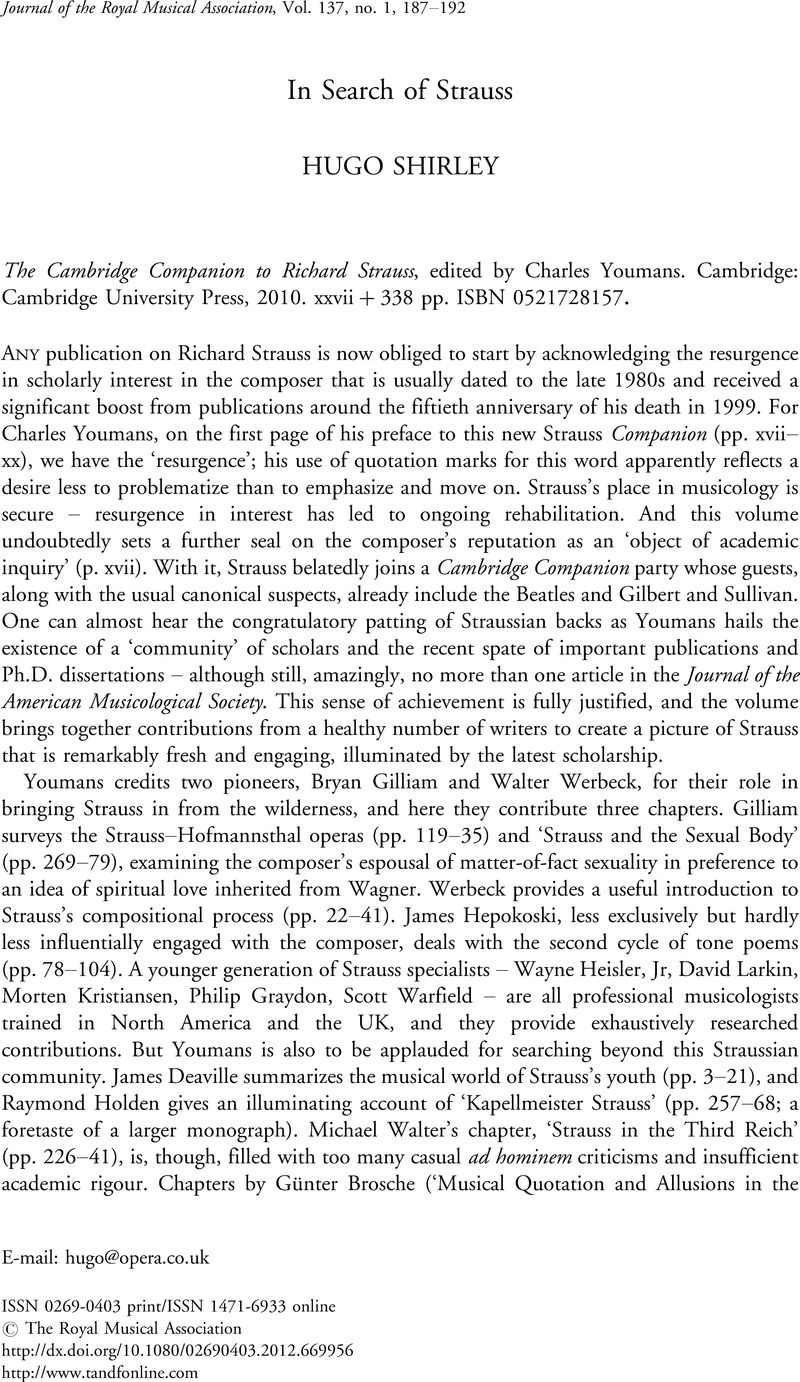No CrossRef data available.

1 Richard Strauss, Recollections and Reflections, ed. Willi Schuh, trans. L. J. Lawrence (London, 1953).
2 ‘Reflection’ is closer to the original German, Nachdenken, than the ‘meditation’ chosen by Lawrence in Recollections and Reflections, 13. The ‘first-class second-rate composer’ remark is widely quoted, for example in Norman Del Mar, Richard Strauss: A Critical Commentary on his Life and Works, 3 vols. (London, 1962–72), i, p. xii.
3 Carolyn Abbate, ‘Elektra's Voice: Music and Language in Strauss's Opera’, Richard Strauss: Elektra, ed. Derrick Puffett, Cambridge Opera Handbook (Cambridge, 1989), 107–27 (p. 117).
4 Theodor W. Adorno, ‘Richard Strauss: Born June 11, 1864’, trans. Samuel and Shierry Weber, Perspectives of New Music, 3 (1964), 14–32; 4 (1965), 113–29. Glenn Gould, ‘An Argument for Richard Strauss’, The Glenn Gould Reader, ed. Tim Page (New York, 1984), 84–92.
5 Leon Botstein, ‘The Enigmas of Richard Strauss: A Revisionist View’, Richard Strauss and his World, ed. Bryan Gilliam (Princeton, NJ, 1992), 3–32 (p. 14).
6 Wayne Heisler, Jr, The Ballet Collaborations of Richard Strauss (Rochester, NY, 2009), 5.
7 Michael Kennedy, ‘Introduction: The Warmer Climate for Strauss’, Richard Strauss: New Perspectives on the Composer and his Work, ed. Bryan Gilliam (Durham, NC, and London, 1992), xi–xvii.